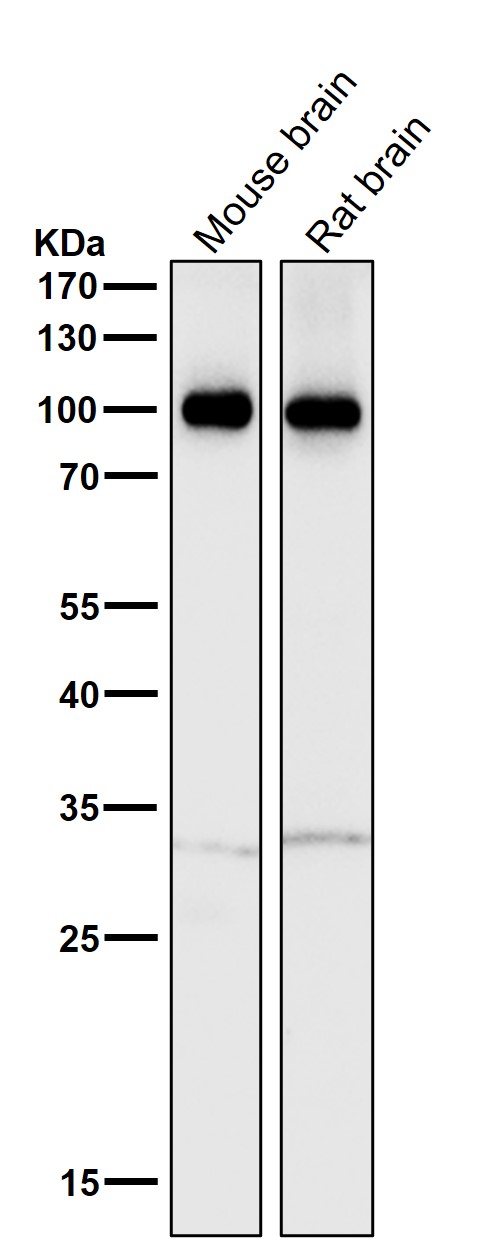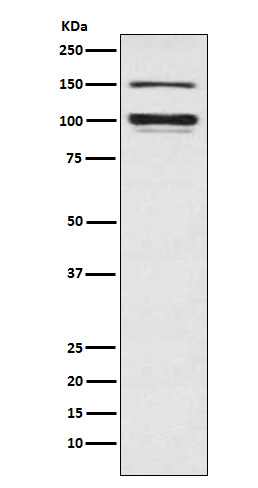

| WB | 咨询技术 | Human,Mouse,Rat |
| IF | 咨询技术 | Human,Mouse,Rat |
| IHC | 咨询技术 | Human,Mouse,Rat |
| ICC | 技术咨询 | Human,Mouse,Rat |
| FCM | 咨询技术 | Human,Mouse,Rat |
| Elisa | 咨询技术 | Human,Mouse,Rat |
| Aliases | AHC2; Atp1a3; DYT12; RDP;;ATP1A3 |
| WB Predicted band size | Calculated MW: 112 kDa ; Observed MW: 100-150 kDa |
| Host/Isotype | Rabbit IgG |
| Antibody Type | Primary antibody |
| Storage | Store at 4°C short term. Aliquot and store at -20°C long term. Avoid freeze/thaw cycles. |
| Species Reactivity | Human,Mouse,Rat |
| Immunogen | A synthesized peptide derived from human ATP1A3 |
| Formulation | Purified antibody in PBS with 0.05% sodium azide,0.05% BSA and 50% glycerol. |
+ +
以下是关于ATP1A3抗体的3篇参考文献示例,涵盖其在不同研究中的应用及发现:
---
1. **文献名称**: *ATP1A3 mutations and genotype-phenotype correlation in alternating hemiplegia of childhood*
**作者**: Heinzen EL, et al.
**摘要**: 本研究探讨ATP1A3基因突变与儿童交替性偏瘫(AHC)的关联,利用特异性ATP1A3抗体进行蛋白功能分析,揭示突变导致钠钾泵功能障碍的分子机制。
2. **文献名称**: *Autoantibodies targeting ATP1A3 in autoimmune encephalitis: a case series*
**作者**: Sabater L, et al.
**摘要**: 报道在自身免疫性脑炎患者血清中发现抗ATP1A3抗体,提示其可能作为新型生物标志物,并阐述抗体与患者神经症状(如共济失调、癫痫)的相关性。
3. **文献名称**: *Immunohistochemical localization of ATP1A3 in the mammalian nervous system*
**作者**: Bøttger P, et al.
**摘要**: 使用ATP1A3特异性抗体进行组织染色,揭示该蛋白在小脑浦肯野细胞和基底神经节的富集表达,为研究其生理功能提供形态学依据。
---
**说明**:ATP1A3抗体相关研究多聚焦于基因突变致病机制(如AHC、肌张力障碍),直接针对其作为自身抗体的研究较少。上述文献示例结合了突变分析、自身免疫疾病及蛋白定位方向,部分内容为简化概括,实际文献可能需要通过数据库进一步检索确认。
×